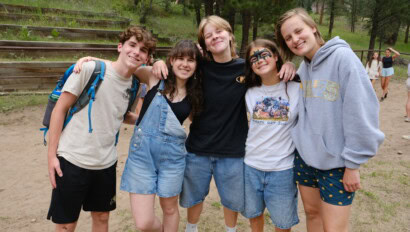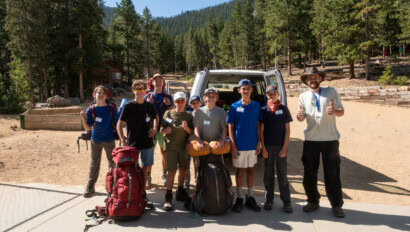As Camp Director, my heart is deeply invested in ensuring that each camper’s experience is one of growth, joy, and discovery; however, in recent years, I’ve observed a concerning trend that has prompted me to reflect on the ways in which we support our campers through moments of vulnerability.
What I’m referring to is the emergence of what we affectionately term “pick-up deals.” These are agreements made between parents and their children prior to camp, promising a swift rescue if feelings of missing home or discomfort become overwhelming. While the intention behind these agreements is undoubtedly rooted in love and concern, the consequences can inadvertently hinder a child’s journey toward independence and resilience.
Decades ago, when I first embarked on my journey as a camp director, it was rare for a parent to retrieve their child early from camp due to feelings of missing home. Back then, there was a collective understanding that moments of longing and uncertainty were an intrinsic part of the camp experience—a rite of passage, if you will. Parents entrusted their children to us, confident that they would emerge from their time at camp stronger, more confident individuals.
Today, however, there is a growing inclination to shield our children from discomfort at all costs. We want to spare them from pain, from sadness, from anything that might cause them distress. And while this impulse is entirely understandable, it can inadvertently deprive our children of the opportunity to develop resilience, grit, and self-assurance.
At Cheley, we believe in the transformative power of discomfort. We understand that feeling a tug of longing for the familiar comforts of home is not only natural but also an integral part of the journey toward independence and self-discovery. By swooping in to rescue our campers at the first sign of homesickness, we deny them the opportunity to confront their emotions, to navigate through adversity, and to emerge on the other side stronger and more self-assured.
With parents, we emphasize the importance of refraining from making pick-up deals with their children. Instead, we encourage parents to engage in open, honest conversations with their children about their feelings of missing home. We encourage them to validate their child’s emotions, to reassure them that it’s okay to feel sad or uncertain, and to equip them with strategies for coping with these feelings in a healthy and constructive manner.
Additionally, we work closely with our staff to ensure that they are equipped with the tools, training, and empathy necessary to support campers who may be struggling with feelings of missing home. From offering a listening ear to providing comfort and reassurance, our staff are committed to creating a nurturing and supportive environment where every camper feels valued, understood, and cherished.
Sending a child to camp is an act of profound trust—a leap of faith, if you will. It requires us, as parents, to have confidence in our children’s resilience, in their ability to navigate through challenges, and in the unwavering support of our camp staff. While it’s natural to feel anxious about our children’s well-being, it’s important to resist the temptation to intervene at the first sign of discomfort. Instead, let us embrace the discomfort, the uncertainty, and the growth that comes with it.
So, the next time you’re tempted to make a pick-up deal with your child, I invite you to pause and reflect. Trust in their resilience, in their strength, and in the transformative power of discomfort. After all, it’s in those moments of longing, of uncertainty, of missing home, that our children discover the depths of their courage, their resilience, and their capacity for growth. And that is a gift worth embracing.




